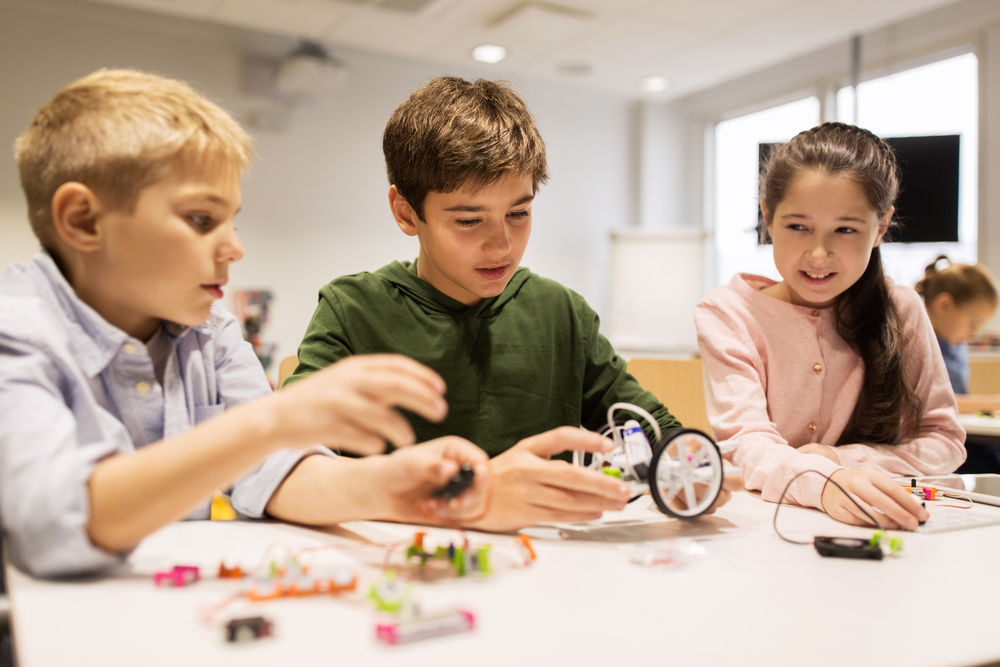Basic Addition Skills Extra Challenge Math Worksheets for Ages 3-5
5 filtered results
-
From - To
Introduce your little one to the joys of math with our "Basic Addition Skills Extra Challenge Math Worksheets for Ages 3-5." These fun, engaging printable activities are specifically designed to strengthen early math skills and give young learners a head start. Perfect for children who are just beginning their mathematical journey, each worksheet offers an extra challenge to boost confidence and mastery. Our carefully crafted exercises ensure that kids develop a strong foundation in simple addition while having fun. Give your child the tools they need to excel with our easy-to-follow and delightful worksheets. Suitable for home or classroom use.
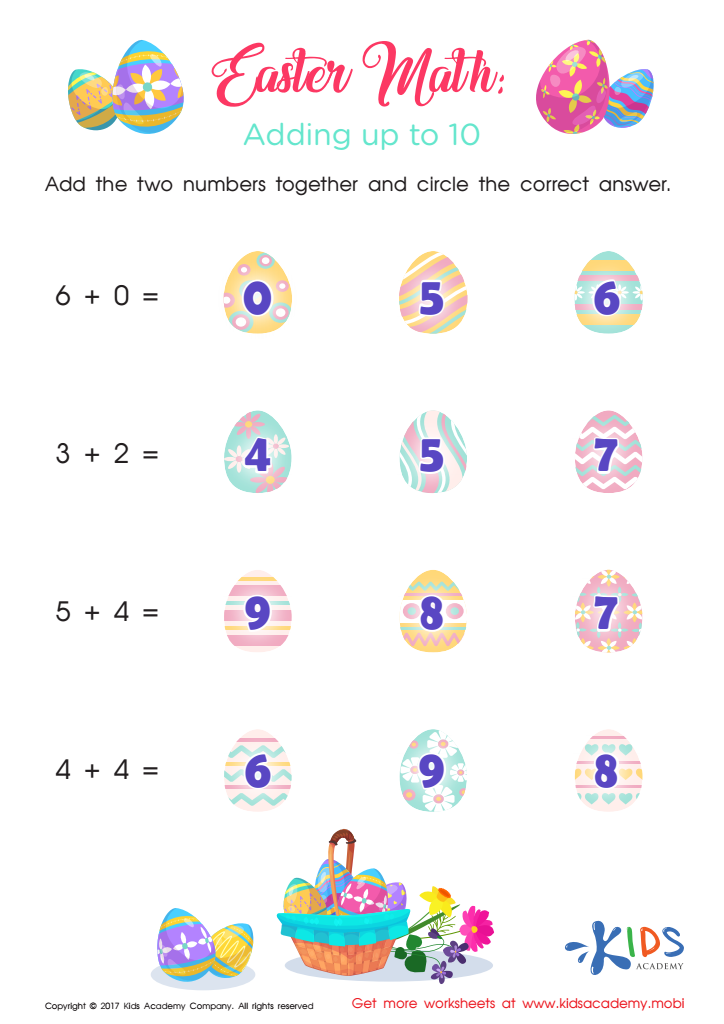

Addition Up To 10 Worksheet
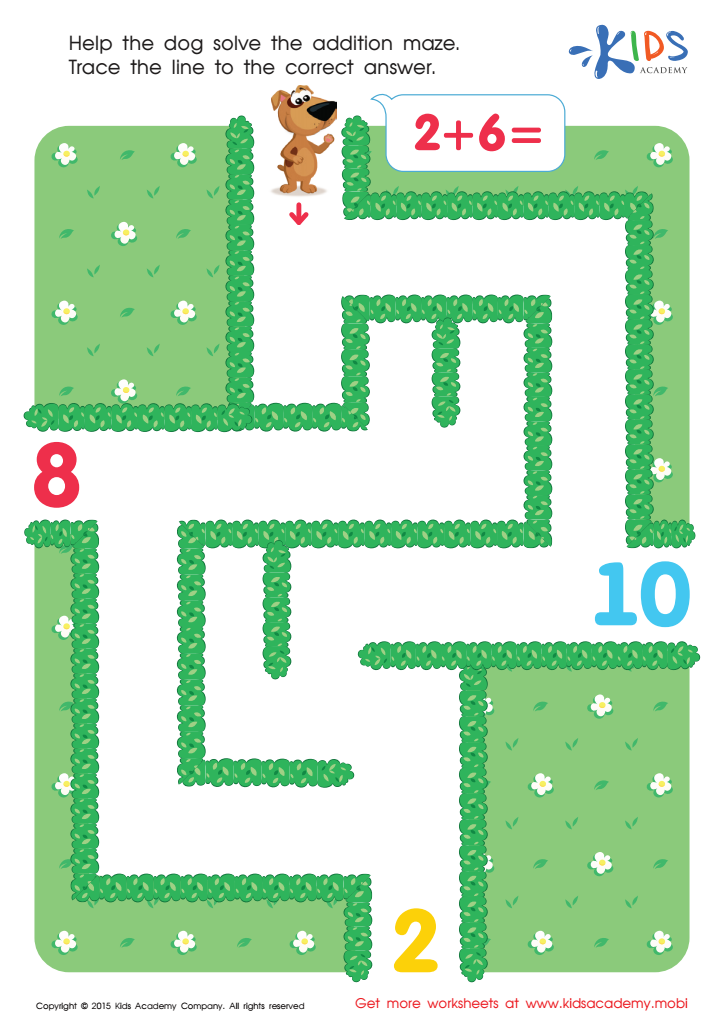

Two Plus Six Addition Worksheet
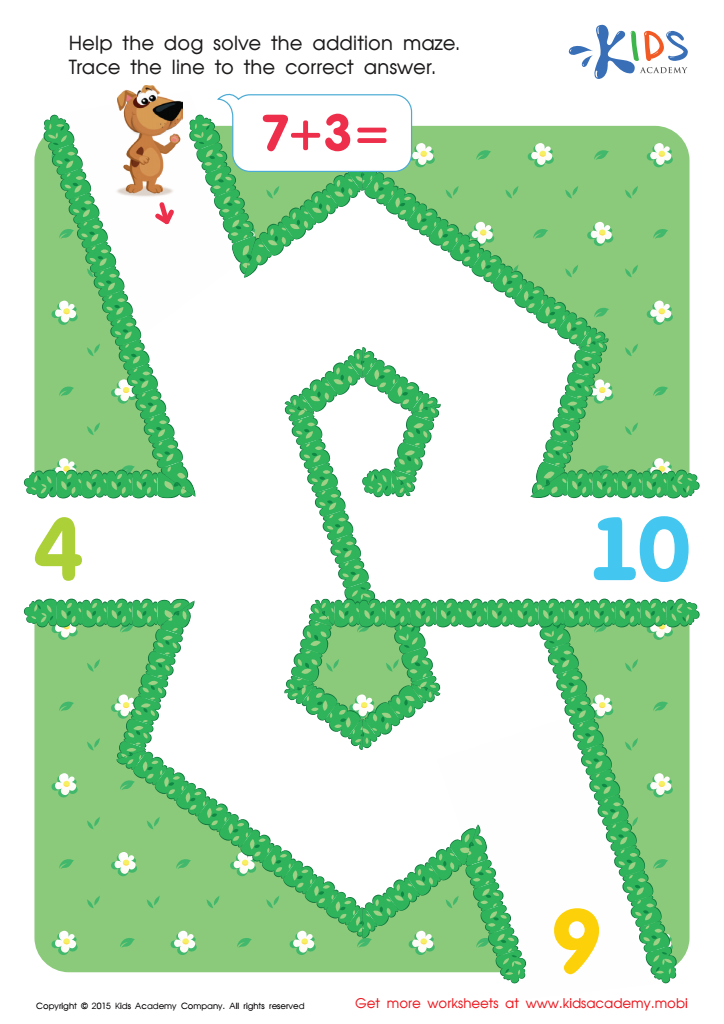

Seven Plus Three Worksheet
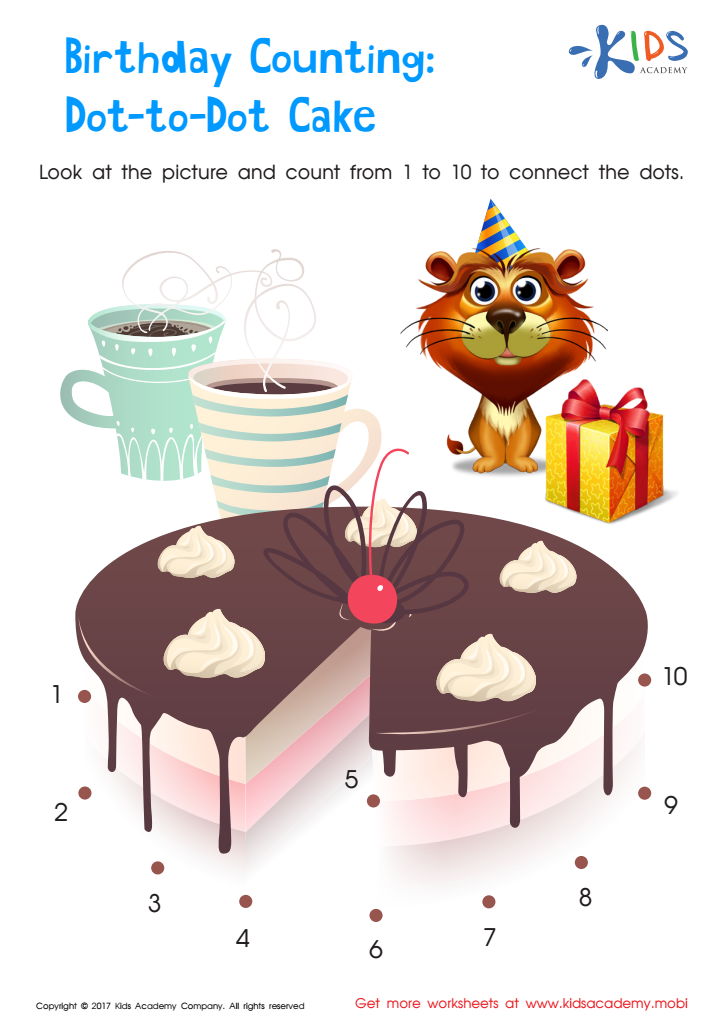

Birthday Counting Connect Dots Worksheet
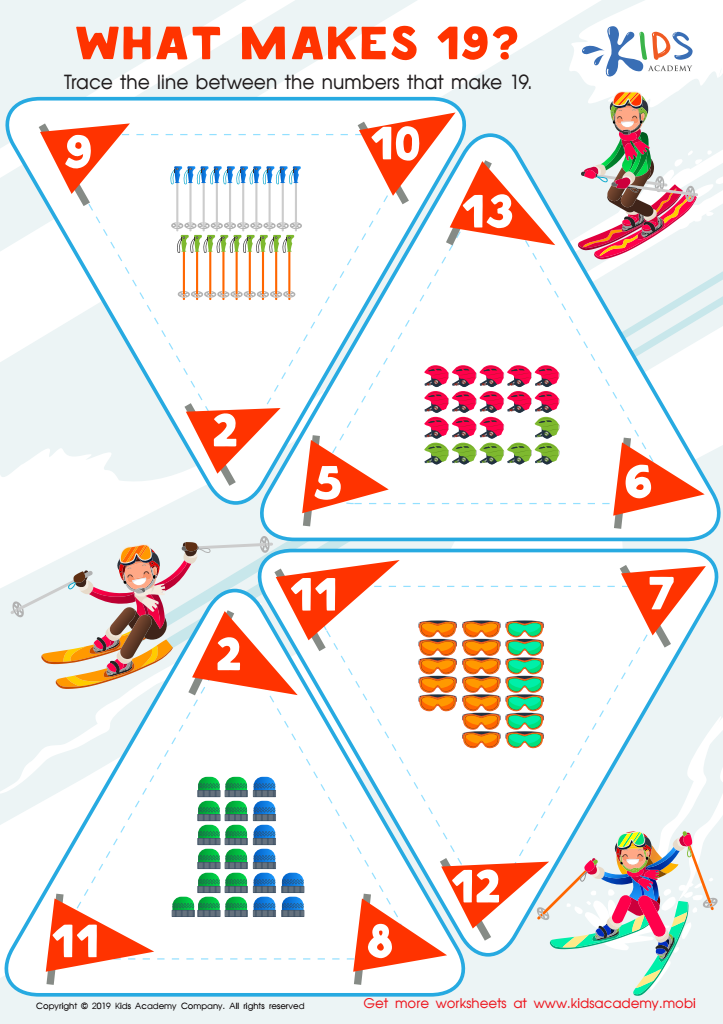

What Makes 19? Worksheet
Caring about basic addition skills in early childhood is crucial because it lays a strong mathematical foundation that supports children's future learning and cognitive development. During ages 3-5, young minds are exceptionally receptive to new concepts, and introducing them to basic addition through engaging activities propels their basic arithmetic understanding. Utilizing challenges adds excitement, keeping children interested and motivated.
These formative years encompass key stages of brain development, where nurturing numerical cognition alongside language or social skills pays long-term academic dividends. Mastery of basic addition enhances problem-solving skills, critical thinking, and logical reasoning, which extend beyond mathematics. Successfully confronting challenges boosts a child’s confidence and fosters a positive learning attitude, setting an encouraging precedent for learning other complex topics in the future.
From social perspectives, participating in addition challenges promotes collaboration and teamwork among peers, enriching their communication and cooperative problem-solving skills. For parents and teachers, dedicating time to these mathematic exercises cultivates stronger relationships with children, presenting opportunities to understand individual learning paces and to provide personalized support. Thus, making basic addition skills an essential focal point for young learners embeds joy, confidence, and critical skills in their educational journey.
 Assign to My Students
Assign to My Students





